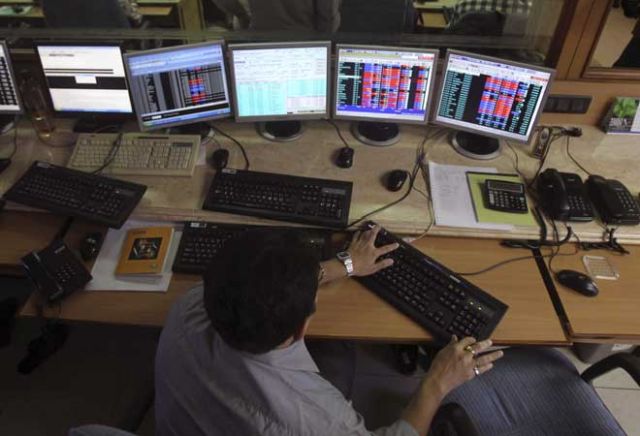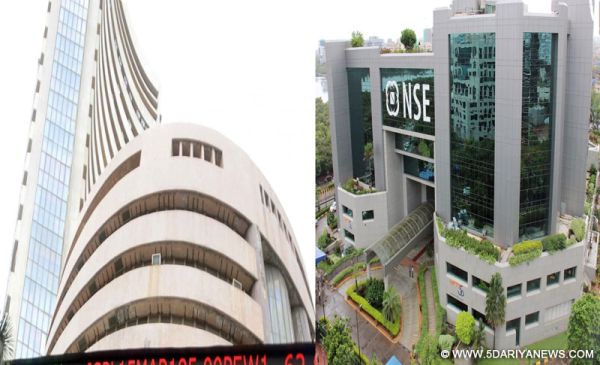
by Editor | May 25, 2021 | Muslim World
 Jeddah : While the global economic growth rate declined from 3.4 percent in 2015 to 3.1 percent last year, the Kingdom’s economy grew by 1.7 percent, the Saudi Arabian Monetary Agency (SAMA) reported.
Jeddah : While the global economic growth rate declined from 3.4 percent in 2015 to 3.1 percent last year, the Kingdom’s economy grew by 1.7 percent, the Saudi Arabian Monetary Agency (SAMA) reported.
King Salman’s “wise leadership was keen on improving citizens’ standard of living; thus the pace of expenditure was maintained throughout the year, and our total spending reached SR830.5 billion ($221.45 billion),” said SAMA Governor Dr. Ahmed bin Abdul Karim Alkholifey. “This contributed to mitigating the impact of declining oil prices on the local economy and government services.”
Alkholifey cited “several strategic initiatives to achieve a sustainable, adaptable and globally competitive economy with diversified production and sufficient job opportunities.”
He added: “International experiences of economic reforms are proof that the vital and promising structural developments through which our national economy is going to need more time to accommodate, integrate and adapt its different sectors.”
Alkholifey cited various positive indicators, including total assets of commercial banks, increased by 2.2 percent to more than SR2.5 trillion; bank credit to the private and public sectors increasing by 2.8 percent to about SR1.4 trillion; and the banking industry’s profitability remaining high compared to global performance, with a return on assets of 1.8 percent and a return on equity of 12.6 percent by the end of 2016.
He said SAMA’s 53rd annual report showed that banks continued to provide modern and comprehensive financial services through diverse channels across the Kingdom.
“SAMA is focused on raising financial awareness and improving financial inclusion across Saudi Arabia. We hope this will contribute remarkably to diversifying the economy,” he said.
The Financial Sector Development Program, approved by the Council for Economic and Development Affairs, aims to increase the financial sector’s efficiency in supporting the development of the national economy, diversifying its income sources, and enhancing the sector’s ability to promote saving, financing and investing, Alkholifey added.
“In order to achieve this, we seek to empower financial institutions to support private sector growth,” he said.
“The program is also keen on building a sophisticated financial market, improving the saving system and financial planning, and enabling the sector to maintain harmony in achieving other strategic objectives, particularly the stability of the financial sector.”
Alkholifey said SAMA is working to fulfill its mission by meeting the needs of the national economy and achieving Vision 2030. King Salman commended the agency’s efforts to serve the economy.
—SM/IINA

by Editor | May 25, 2021 | Banking, Economy, Markets, News
 Mumbai : Healthy macro-economic industrial production data, along with broadly positive Asian markets buoyed the key Indian equity indices — the BSE Sensex and the NSE Nifty 50 — during the mid-afternoon trade session on Wednesday.
Mumbai : Healthy macro-economic industrial production data, along with broadly positive Asian markets buoyed the key Indian equity indices — the BSE Sensex and the NSE Nifty 50 — during the mid-afternoon trade session on Wednesday.
According to market observers, brisk buying was witnessed in healthcare, banking and oil and gas stocks.
At 12.35 p.m. the wider 51-scrip Nifty50 of the National Stock Exchange (NSE) traded at 10,114.25 points — up 21.20 points or 0.21 per cent.
The 30-scrip Sensitive Index (Sensex) of the BSE, which opened at 31,188.95 points, traded at 32,283.36 points — up 124.70 points, or 0.39 per cent, from its previous close at 32,158.66 points.
The Sensex has so far touched a high of 32,287.55 points and a low of 32,137.71 points during intra-day trade.
“The BSE Sensex and the broader NSE Nifty were trading higher on the back of positive Asian markets and slight improvement in industrial production as shown by the IIP data which was released yesterday,” Dhruv Desai, Director and Chief Operating Officer of Tradebulls, told IANS.
—IANS

by Editor | May 25, 2021 | Corporate, Corporate finance, Muslim World

Private lenders from Iran and South Korea have signed an agreement to cooperate over banking issue with each other.
Tehran : Iran and South Korea signed an agreement to cooperate in banking sector, media reports said.
The agreement was signed by Ha Yung-ku, chairman of the Korea Federation of Banks, and Kourosh Parvizian, head of Iran’s Association of Private Banks, Press TV reported on Friday.
The agreement, between private lenders of Iran and South Korea, mostly envisages the expansion of non-dollar trade between the two countries.
It also calls for the share information on banking affairs, provides banking assistance to importers and exporters, and conducts exchanges of financial training.
Iranian bankers have called for the expansion of euro-based trade between the two countries what it said had been welcomed by South Korean bankers, Xinhua news agency reported.
In late August, Iran secured a $9.6-billion credit line from South Korea’s Eximbank as the country’s biggest loan deal since the removal of sanctions against it in early 2016.
—IANS

by Editor | May 25, 2021 | Banking, Economy, Markets, News
 Mumbai : Negative Asian markets on the back of escalating geo-political tensions and heavy selling pressure in banking and auto stocks dragged key Indian equity indices — the NSE Nifty50 and the BSE Sensex — lower by almost one per cent each during the mid-afternoon trade session on Monday.
Mumbai : Negative Asian markets on the back of escalating geo-political tensions and heavy selling pressure in banking and auto stocks dragged key Indian equity indices — the NSE Nifty50 and the BSE Sensex — lower by almost one per cent each during the mid-afternoon trade session on Monday.
Around 12.40 p.m., the wider 51-scrip Nifty50 of the National Stock Exchange (NSE) fell by 79.60 points, or 0.80 per cent, to trade at 9,894.80 points.
The 30-scrip Sensitive Index (Sensex) of the BSE, which opened at 31,932.20 points, traded at 31,658.18 points — down 234.05 points or 0.73 per cent from its previous close at 31,892.23 points.
The Sensex has so far touched a high of 31,932.20 points and a low of 31,560.32 points
The BSE market breadth was bearish with 1,724 declines and 725 advances.
“Indian equity benchmark indices edged lower in opening deals led by losses in pharma heavyweights Lupin, Sun Pharma and Dr. Reddy’s Labs,” Dhruv Desai, Director and Chief Operating Officer of Tradebulls, told IANS.
“Markets are back in the grip of a bear hug after North Korea’s nuclear bomb test on Sunday fanned the flames of geopolitical tensions. Stocks across Asia tumbled as investors rushed to safe haven assets,” he added.
On Friday, the benchmark indices closed on a higher note on hopes of a policy rate cut by the Reserve Bank of India (RBI) and broadly positive global cues.
The Nifty50 rose by 56.50 points, or 0.57 per cent, to close at 9,974.40 points, while the Sensex closed at 31,892.23 points — up 161.74 points or 0.51 per cent.
—IANS

by Editor | May 25, 2021 | Opinions
 By Nirendra Dev New Delhi, (IANS) The government has asked its agencies dealing with economic offences to study the loopholes in the country’s banking laws to prevent ill-gotten money from leaving the country’s shores and facilitate the return of black money stashed away abroad, well informed sources said.
By Nirendra Dev New Delhi, (IANS) The government has asked its agencies dealing with economic offences to study the loopholes in the country’s banking laws to prevent ill-gotten money from leaving the country’s shores and facilitate the return of black money stashed away abroad, well informed sources said.
With the quantum of black money held by Indians abroad variously estimated at between $466 billion and $1.4 trillion, the idea is to get a fix on how the network operates so that the government is able to crack the nexus and deliver on its promise of getting back such ill-gotten assets.
“Pervading secrecy, cut-throat competition among private and international banks, along with the organised crime models, have all resulted in giving a boost to money laundering both in India and abroad,” said a government source, requesting anonymity.
“There is also competition. A large number of foreign and private banks operate in secrecy. Then in jurisdictions like Switzerland and Cyprus, dirty money is often pumped in their financial system via organised channels — or even wire-transferred now,” the source told IANS.
“What we also understand is that multiple layers of secrecy in the system helps clients to mask their accounts and transactions. So directives have been issued by the home ministry and the finance ministry to various agencies to study how the system is aiding such offences.”
Among the agencies roped in are the Enforcement Directorate, Serious Fraud Investigation Office, and the related wings of customs and the Reserve Bank of India. Also being studied is: To what extent the secrecy in the banking system is contributing to money laundering, sources said.
Sources explained that such an exercise also became necessary after preliminary reports from the agencies and departments under the finance ministry reported that private banks in large numbers failed to present case studies by themselves about the modus operandi.
“Privacy is at the core of the functioning of private banks. So the government is left with few options when it wants to crack down on leads — also because money laundering involves multiple transactions to disguise the source of funds,” said the source.
Officials said a comprehensive study can also help in understanding how the flow of such money can be curbed, while also equipping banks to themselves have strong anti-money laundering rules for clients, backed by law.
During the latest US visit of Finance Minister Arun Jaitley, coordination and cooperation among various countries to curb money laundering was at the core of his itinerary. Even at the special session of the US on drugs, he dwelt on the nexus between illicit money, drugs and terrorism.
India also wants to give inputs to the Organisation of Economic Cooperation and Development to be able to come up with objective criteria soon to identify jurisdictions that did not cooperate towards a transparent financial system. “Defensive” steps are being considered against them.
The move also comes against the backdrop of the recent global expose of International Consortium of Investigative Journalists (ICIJ) and over 100 global media organisations on off-shore funds of some powerful people globally, based on millions of leaked documents of a Panama law firm.
The team of officers from the Central Board of Direct Taxes’ Financial Intelligence Unit, the board’s Tax Research Unit, and the Reserve Bank of India, is probing the expose about the “Panama Papers” .
(Nirendra Dev can be contacted at nirendra.n@ians.in)

 Jeddah : While the global economic growth rate declined from 3.4 percent in 2015 to 3.1 percent last year, the Kingdom’s economy grew by 1.7 percent, the Saudi Arabian Monetary Agency (SAMA) reported.
Jeddah : While the global economic growth rate declined from 3.4 percent in 2015 to 3.1 percent last year, the Kingdom’s economy grew by 1.7 percent, the Saudi Arabian Monetary Agency (SAMA) reported.



